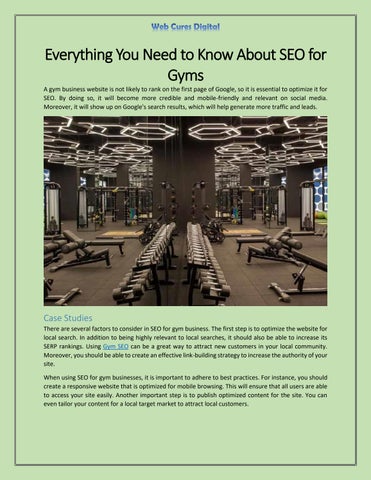SEO is crucial for eCommerce businesses to enhance visibility and drive traffic. It optimizes online stores for better search engine rankings, directly impacting sales.
Ecommerce businesses operate in a highly competitive digital environment where visibility is key to success. Search engine optimization (SEO) serves as the foundational element that can make or break an online store’s presence. As customers increasingly turn to search engines to find products and services, SEO ensures that an eCommerce website ranks high in search results, thereby increasing the likelihood of attracting potential customers.
With precise keyword research and strategic content placement, businesses can effectively communicate their offerings to the target audience. SEO tactics not only improve search rankings but also enhance user experience, making it easier for customers to navigate the site and find what they’re looking for. This introduction aims to unpack the significance of SEO for eCommerce ventures, emphasizing its role in driving organic traffic and boosting conversion rates.

Credit: geniusecommerce.com
Understanding The Role Of Seo In Ecommerce
SEO, or Search Engine Optimization, is the backbone of online visibility for ecommerce businesses. With most consumers turning to search engines for product discovery and purchases, SEO ensures your products and services surface at the right place and time. By optimizing your ecommerce site, you’re not just aiming to improve your rankings on search results pages—you’re striving to capture and engage potential customers, enhance user experience, and ultimately increase conversions.
Benefits Of Seo For Ecommerce
- Higher Visibility and Traffic: SEO helps your ecommerce site rank higher in search engine results, which can lead to increased organic traffic.
- Better User Experience: SEO involves optimizing the structure and content of your site, making it more user-friendly and navigable.
- Increased Credibility: Sites that appear on the first page of search results are often considered more trustworthy by consumers.
- Cost-Effectiveness: SEO is one of the most cost-efficient marketing strategies as it targets users who are actively searching for your products online.
- Insights into Customer Behavior: SEO tools and analytics provide valuable data about consumer search behavior, which can be used to make informed business decisions.
Impact Of Seo On Ecommerce Sales
| SEO Strategy | Effect on Ecommerce Sales |
|---|---|
| Keyword Optimization | Directs relevant traffic to product pages, potentially boosting sales. |
| High-Quality Content | Engages customers and encourages them to complete a purchase. |
| Mobile Optimization | Targets the growing number of mobile shoppers, increasing the likelihood of on-the-go purchases. |
| Page Load Speed | Enhances user experience, which can reduce bounce rates and promote conversion. |
| Backlink Profile | Improves domain authority, leading to better search rankings and greater brand exposure. |
Ultimately, SEO’s impact on sales is significant. It not only brings more traffic to your ecommerce site but also helps in converting browsers into buyers. A well-optimized ecommerce site creates a smooth and accessible shopping experience, making it easier for customers to find and purchase the products they’re searching for. This results in a direct uptick in sales figures and provides a solid foundation for sustained growth.
Importance Of Keyword Research In Ecommerce Seo
Understanding the foundational role of keyword research in Ecommerce SEO is crucial for any online business aiming to thrive in a competitive market. This strategy is more than just identifying popular search terms; it’s about gaining deep insights into customer needs, search behavior, and finding opportunities to align with those factors to drive traffic to your online store. Effective keyword research directly impacts visibility, rankings, and ultimately, conversions and revenue.
Significance Of Targeted Keywords
Identifying and utilizing targeted keywords is the cornerstone of any successful Ecommerce SEO strategy. These keywords must be meticulously selected to closely match the search queries entered by potential customers. Achieving a high ranking for targeted keywords ensures that the traffic driving to your site is qualified and more likely to convert into sales. Not only does this elevate the user experience by providing relevant content, but it also enhances the efficiency of your marketing efforts and the optimization of your product pages.
Long-tail Keywords For Ecommerce Websites
Long-tail keywords are extremely valuable for Ecommerce websites due to their specificity and lower competition. These phrases, which are often three or more words long, cater to niche demographics and address precise user intent. By targeting long-tail keywords, Ecommerce businesses can attract highly interested customers, resulting in a better conversion rate. Additionally, these keywords can significantly contribute to the growth of organic traffic, as they align with the specific, varied queries that shoppers use to find niche products. Utilizing long-tail keywords effectively requires an in-depth understanding of your product offerings and the unique characteristics your potential customers are searching for.
| Keyword Type | User Intent | Competition | Conversion Potential |
|---|---|---|---|
| Generic Keywords | Broad, non-specific | High | Lower |
| Targeted Keywords | Specific, high intent | Medium | Higher |
| Long-tail Keywords | Highly specific, niche | Low | Highest |
In summary, a sound keyword research strategy enables Ecommerce businesses to tap into the mindset of their consumer base. By prioritizing both targeted and long-tail keywords, these retailers not only improve their search engine visibility but also increase their chances of acquiring customers who are ready to make a purchase decision. Step into the place of your potential customer, understand their search habits, and let the precision of your keyword targeting guide them seamlessly to your virtual storefront.
On-page Seo Best Practices For Ecommerce
On-Page SEO is a crucial aspect for success in the ecommerce world. Implementing the best practices not only helps your products get found on search engines but also enhances the user experience. The goal is to optimize each aspect of your ecommerce site so that you can outrank your competitors and boost conversions. Dominating the digital shelves requires attention to detail, from crafting the perfect product descriptions to optimizing your images for web performance.
Optimal Product DescriptionsOptimal Product Descriptions
The heart of on-page SEO for ecommerce lies in powerful product descriptions. A compelling product description does more than just inform; it entices the customer to make a purchase. Here are the essential elements for creating SEO-friendly product descriptions:
- Relevant Keywords: Incorporate keywords that your customers are searching for, but avoid keyword stuffing.
- Unique Content: Write original, plagiarism-free descriptions to stand out from competitors and avoid duplicate content issues.
- Features and Benefits: Highlight the key features of your product and how they benefit the customer.
- Clear Structure: Use bullet points or short paragraphs to make the content digestible.
- Emotional Connection: Tap into the emotions that drive purchases by focusing on how the product can improve the customer’s life.
Image Optimization For Ecommerce
Images play a pivotal role in an online shopper’s decision-making process. Optimizing your images for ecommerce not only speeds up your site but also boosts your SEO. Follow these best practices:
- Descriptive Filenames: Change the default image name to a meaningful filename that includes keywords.
- Alt Text: Add alt text to each image, describing the picture and including relevant keywords for search engine crawlers.
- Compression: Use tools to compress images, reducing file size without compromising quality, hence improving page load speed.
- Responsive Images: Ensure images are responsive and display correctly across all devices.
- File Type Selection: Choose the right file types (JPEG, PNG, or WebP) based on quality and file size.
Off-page Seo Strategies For Ecommerce Success
Off-Page SEO Strategies for Ecommerce Success play a pivotal role in elevating your online store’s visibility, driving traffic, and ultimately boosting sales. What happens outside your website is as crucial as the on-page elements. In the bustling marketplace of the internet, gaining authority and trust from external sources makes a significant impact on your ecommerce rankings.
Earning Quality Backlinks
Backlinks, or inbound links, are one of the most influential off-page SEO factors. Search engines consider quality backlinks as votes of confidence in your content. To earn these coveted links:
- Create share-worthy content such as comprehensive guides, infographics, and industry research.
- Engage in guest blogging on reputable sites relevant to your niche.
- Participate in influencer outreach to have your products featured in their content.
- Monitor your competitors’ backlinks and aim to acquire similar ones for your ecommerce site.
Tools like Ahrefs and SEMrush can assist in analyzing backlink profiles and identifying opportunities.
Leveraging Social Media For Ecommerce Seo
Social media platforms can be powerful channels for improving the SEO of your ecommerce business. They enable you to:
- Boost brand awareness and generate referral traffic to your store.
- Share content that encourages backlinks and engagement from a wider audience.
- Collaborate with influencers and leverage user-generated content to gain additional exposure.
Ensure a consistent presence across networks like Facebook, Instagram, Twitter, and Pinterest. Engage with your audience by responding to comments, sharing reviews, and uploading media-rich posts that highlight your products.
Measuring The Success Of Ecommerce Seo
Measuring the success of Ecommerce SEO stands as a critical component for online businesses aiming to thrive in the digital marketplace. With a surge of online competitors, identifying the impact of your search engine optimization efforts is not just beneficial; it’s essential for growth and profitability. This part of our blog provides valuable insights into the metrics and tools necessary for evaluating the effectiveness of your SEO strategies, turning analytical data into actionable business intelligence.
Key Metrics for Ecommerce SEOKey Metrics For Ecommerce Seo
To truly gauge the performance of an Ecommerce SEO campaign, a variety of key metrics must be monitored. Understanding these indicators can help pinpoint areas of success and those requiring improvement. Here’s a breakdown of the most significant metrics to keep an eye on:
- Organic Traffic: This indicates the number of visitors coming to your website through search engines without paid advertising. A rise in organic traffic usually suggests successful SEO.
- Conversion Rate: Monitoring how many of your visitors make a purchase informs you about the effectiveness of your website in convincing prospects to take action.
- Keyword Rankings: The position of your website in search engine results for targeted keywords reflects your visibility to potential customers.
- Bounce Rate: A lower bounce rate means visitors find your website relevant, which is a positive signal to search engines.
- Average Order Value: Understanding the average spend can guide you in optimizing your website for higher-value sales.
- Customer Lifetime Value: Gauging the long-term value of customers can help tailor SEO strategies for sustained profitability.
Tools For Analyzing Seo Performance
Equipped with a diverse suite of analytical tools, Ecommerce business owners can effectively measure their SEO performance. Each tool offers unique capabilities to track the aforementioned metrics, simplifying the task of assessing and enhancing your SEO campaigns. Here are some indispensable tools that serve this purpose:
| Tool | Functions | Benefits |
|---|---|---|
| Google Analytics | Track website traffic, user behavior, and conversions | Integrates with other Google services, offers comprehensive reports |
| SEMrush | Analyze keyword rankings, backlink quality, and competitor SEO strategies | Provides actionable insights for enhancing keyword strategy |
| Ahrefs | Examine detailed backlink profiles, content performance, and SERP history | Helps identify content gaps and optimize off-page SEO |
| Moz Pro | Site audits, rank tracking, and keyword research tools | Offers tailored recommendations for SEO improvements |
With these tools at your disposal, drawing meaningful conclusions from your SEO data becomes an achievable task. Effective analysis leads to informed decisions, fostering a successful Ecommerce SEO strategy that propels your business forward in the online landscape.
Frequently Asked Questions For The Importance Of Seo For Ecommerce Businesses
Why Is Seo Crucial For E-commerce Success?
SEO helps e-commerce businesses enhance visibility and attract organic traffic. It optimizes the online store for search engines, leading to improved rankings. Higher rankings increase the likelihood of potential customers finding the store, driving sales and revenue.
Can Seo Improve Online Sales For E-commerce?
Absolutely, SEO can significantly boost online sales. By targeting relevant keywords, SEO makes it easier for potential buyers to find your products. Better search engine rankings mean more visibility, which often translates to increased sales opportunities.
How Does User Experience Affect E-commerce Seo?
User experience is a key factor for SEO rankings. An intuitive and fast-loading e-commerce site keeps visitors engaged longer, reducing bounce rates. This signals search engines that the site is valuable, potentially improving its ranking and attracting more traffic.
What Are The Best Seo Practices For E-commerce Sites?
Best practices for e-commerce SEO include optimizing product descriptions with keywords, using high-quality images, and ensuring a mobile-friendly design. Regularly updating content, utilizing backlinks, and improving site speed are also crucial for enhancing SEO performance.
Conclusion
Embracing the power of SEO is essential for ecommerce success. It amplifies visibility, lures targeted traffic, and enhances conversion rates. Mastering SEO strategies ensures your business thrives in the digital marketplace. Stay ahead of the curve; invest in SEO to reap lasting benefits for your ecommerce venture.
Let’s harness the potential of SEO and drive your online store to new heights today.






You have mentioned very interesting points!
ps nice website.Expand blog